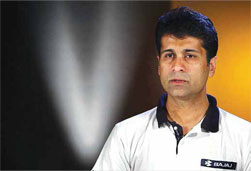
Industrialist Rajiv Bajaj, takes a potshot at the centre after being aggrieved at the hurdles faced by his company to launch its quadricycle in India. He snuffed the centre by saying ‘Made in India’ is Mad in India. The managing director of Bajaj Auto, pondered as to why a vehicle (quadricycle), which is cleaner, fuel-efficient, safer and whose benefits are as “obvious as daylight”, is facing troubles, despite having a good run in and across countries like Europe, Asia and Latin America. The adverse impact of demonetisation continuing to hamper two-wheeler sales, the MD felt that the idea of demonetisation itself was wrong, forget about blaming only the execution side of it. He went on to say that demonetisation was not working, stated that the execution of this idea is not right, as the idea of demonetisation itself is wrong—while talking at the annual Nasscom Leadership Forum in Mumbai, recently. Bajaj Auto’s total domestic sales in January dipped 16 per cent to 1,35,188 units from 1,61,870 units sold during the same period last year. Based on data provided by the Society of Indian Automobile Manufacturers, two-wheeler sales stood at 12,43,251 units in November, compared with 13,20,552 units during the corresponding month last year.
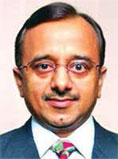
Life Insurance Corporation (LIC) of India, gets a new face up on board as, Hemant Bhargava takes charge as the managing director. This move was initiated by the Appointments Committee of the Cabinet who have called in Bhargava, the zonal manager (LIC) Delhi. According to the personnel Ministry, Bhargava’s appointment to the post till his superannuation, till July 31, 2019. He has been with LIC for over three decades serving in different capacities all over India and abroad. He has been the country head of LIC Mauritius, head of International Operations SBU of LIC. He also served on the board of National Mutual Fund Mauritius LIC. He has vivid interests in the collection and study of postage stamps (philately), numismatic (collecting coins) besides reading, gardening swimming, rowing and table tennis.
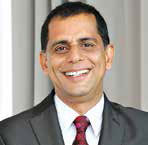
Balesh Sharma will take over from Naveen Chopra as the chief operation officer of Vodafone Group, India. Sharma who was the head of the Czech Republic, comes in as the part of major organisational changes. To better tackle competitive pressures triggered by the entry of Reliance Jio Infocomm, Sharma will take over from Chopra from April 1 this year. India’s No. 2 telecom carrier is further streamlining its structure by integrating its commercial functions with operations, both of which will be under Sharma. He has been the CEO at Vodafone Czech Republic since 2013 and has been with the company since 2011. Sharma has worked for Vodafone in Malta, Delhi and Bengaluru markets. Before joining Vodafone, he has worked with BPL Mobile and Xerox. The organisational changes come at a time of immense strife for the telco, which has been struggling to deal with competitive pressures and a resultant brutal price war since the entry of Mukesh Ambani-owned Reliance Jio Infocomm.

Sanjeev Sanyal, former global strategist and managing director of Deutsche Bank, has been appointed as the principal economic adviser in the finance ministry. He will work under chief economic adviser Arvind Subramanian. Sanyal is a well-known economist and has authored several books including the Land of the Seven Rivers: A Brief History of India’s Geography. He has been a Fellow of the Royal Geographical Society, London, visiting scholar at Oxford University, Adjunct Fellow at the Institute of Policy Studies, Singapore, and a Senior Fellow of the World Wide Fund for Nature (formerly World Wildlife Fund). The bestselling author, Sanyal, has made his mark in diverse areas such as environment and sustainable development, urban issues, microfinance as well as foreign investment, making him eminently suitable for this public policy role. Sanyal was among the others to visualise when micro- lending was a non-profit initiative and had not reached any scale.
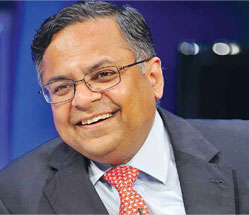
Natarajan Chandrasekaran, is the new chairman and additional director of Tata Power. Tata Sons has exercised the authority under the Company’s Articles of Association and nominated N Chandrasekaran as chairman of the Board of Directors of the Company, according to a BSE filing. Currently the chairman of Tata Steel and Tata Motors, Chandrasekaran is also the director of The Indian Hotels Company and the Reserve Bank of India. Tata Sons in a release stated that they exercised the authority under the Company’s Articles of Association and nominated N Chandrasekaran as Chairman of the Board of Directors of the Company with effect from February 11, 2017. “I am honoured to be appointed as the chairman of the Board of this historic organisation which has been serving the nation for the past 100 years with dedication. It will be my endeavour to help the management team fulfil Tata Power’s commitment to light up the lives of our future generations,” Chandrasekaran was quoted in the statement.
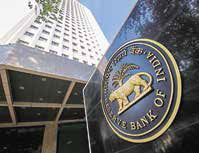
Three non-official directors were in the Reserve Bank of India’s board for a period of four years. The three new directors who were named by the government of India are, Ashok Gulati, Manish Sabharwal and Rajiv Kumar. Gulati, Indian economist writer, also focuses on agriculture and also is the Infosys Chair Professor for Agriculture at the Indian Council for Research on International Economic Relations (ICRIER), while Sabharwal, also a writer serves on State and Central government committees of education, employment. He was also a chief executive officer of Hewitt Outsourcing (Asia) based in Singapore. Rajiv Kumar, senior fellow at Centre for Policy Research, is an economist and the author of several books on the Indian economy and India’s national security. Kumar is also chancellor of the Gokhale Institute of Economics and Politics in Pune and the founding director of Pahle India Foundation, a non-profit research organisation that specialises in policy-oriented research and analysis.
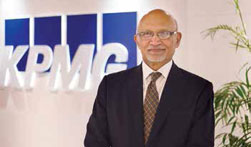
The former assistant commerce secretary in the Obama administration, Arun Kumar, is the new chairman and CEO of KPMG India. He takes charge from Richard Rekhy who resigned, after being the CEO of the audit firm for four years in his five-year tenure. KPMG, one of the world’s leading professional services firms, started its India office in the year 1993. In the last four years, it doubled its India workforce strength to 14,000 people and inducted over 70 partners. Kumar is an old hand at KPMG, having spent most part of his career with the firm’s US unit. He had served on the boards of KPMG US and KPMG Americas between 2008 and 2013. He then had a three year stint with the US government as assistant secretary of commerce for global markets and director general of US and foreign commercial service. He had also worked to strengthen commercial ties between India and the US and played a key role in establishing the India-US strategic and commercial dialogue and a renewed India-US CEO Forum.
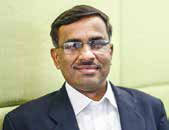
Vikram Limaye takes over as the Managing Director of the National Stock Exchange (NSE). The chartered accountant, Limaye takes over after Chitra Ramakrishna quit NSE, citing personal reasons after a long stint of 23 years. Limaye worked with Credit Suisse First Boston, Citibank, Ernst & Young and Arthur Andersen. He was also on various committees of government in areas like infrastructure, economic policy, markets, trade and minority affairs. Beyond the world of finance, Limaye is also a sports buff. He was a member of the Maharashtra tennis team that played in the nationals, and played cricket for Shivaji Park Gymkhana, in the Mumbai Cricket League.

Free internet is on cards as Alibaba’s UCWeb, the internet software and services provider has big plans for India. The company is currently negotiating with telecom operators and Wi-Fi providers to provide free internet in India, says Jack Huang, President of Overseas Business, Alibaba Mobile Business. Incidentally, this is not for the first time to provide free internet in India. Social networking giant Facebook had launched its internet.org and then Free Basic initiatives in India but both failed to get past the regulations in the country. Also, Mukesh Ambani led Reliance Jio is currently providing free services including data to all consumers. As for Alibaba, it is yet to be seen what kind of free internet services the company is looking to provide but the company is in talks with potential partners. Current rules in India do not allow anyone to connect content with usage and the telecom regulator is in the process of defining Net Neutrality for the country. If Alibaba is looking at connecting its own content to the free usage it will inevitably have issues with the telecom regulator as was seen in Facebook’s Free Basics.
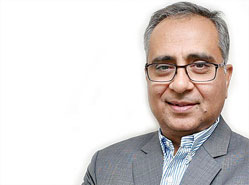
Veteran journalist Vijay Joshi returns to Press Trust of India as as the Editor-in-chief and takes charge from M K Razdan, who retired from the post in September. The former Associated Press’s director, Joshi will oversee text, video and photo operations. Joshi has been with AP for over three decades, besides a previous stint at the PTI in the ’80s. He will oversee the work of some 900 reporters, editors and part-time journalists across India and in bureaus in major world capitals. Last year, when the selection process for the new Editor-in-Chief began prior the retirement of Razdan, there were reports that the government was apparently pushing the candidature of three journalists, namely, Ashok Malik, KA Badrinath and Shishir Gupta. The three are perceived as being closely aligned with the BJP. During his long stint with AP, Joshi shuttled between the continents of Asia and Africa as he worked out of Egypt, India, Iran, Iraq, Jordan, Lebanon, Libya, Malaysia, Singapore and Thailand. Joshi acquired higher education in the field of geology but opted to work as a sub-editor at The Indian Express after obtaining a degree in journalism from Hyderabad’s Osmania University.

Abhishek Kumar, head of M&A and investments, and Sandeep Komaravelly, SVP of Shopo, a C2C marketplace, add to the list of exodus e-tailer, Snapdeal is losing ground to rivals in the last few months. Komaravelly, one of the oldest employees, joined after his startup Grabon was acquired by the ecommerce player in 2010, while Kumar played a key role in multiple acquisitions has had a three-year stint with the Snapdeal. The exit of Kumar and Komaravelly, comes after the SoftBank-backed Snapdeal announced a senior management reshuffle in November last year, when Vishal Chadha, SVP, business, became one of the key executives at the firm and last month, ex-Housing CEO Jason Kothari joined as chief strategy and investment officer of Snapdeal. Earlier, Anand Chandrasekaran, chief product officer, resigned to join Facebook. In the past couple of weeks, the industry has been abuzz with talks of an imminent round of layoffs and a down round being on the cards for the e-tailer. A down round is when a company raises fresh funds at a lower valuation than its previous one. Snapdeal last raised capital at a $6.5-billion valuation.
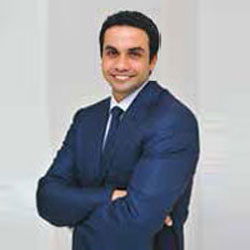
Pirojsha Godrej will anchor Godrej Properties as the executive chairman, in one of several top-level executive changes announced. In a release to the Bombay Stock Exchange (BSE), the company stated the reason behind the change, because the group chairman Adi Godrej stepped down as director of the company but will continue to provide support as chairman emeritus. His responsibilities will be handled by Pirojsha Godrej, who was the managing director and CEO. Mohit Malhotra, an executive director at Godrej Properties, will take on Pirojsha Godrej’s responsibilities as the MD and CEO. In another change, Karan Bolaria, who heads Godrej Fund Management, a subsidiary of Godrej Properties, has been appointed as the CEO. Pirojsha, joined Godrej Properties in 2004, has been the managing director and CEO of the realty developer since 2012. In the years that he has led the company, Godrej Properties has been one of the fastest growing real estate developers in India and for the first time in fiscal year 2016, emerged as India’s largest publicly listed real estate developer by sales.
by Joe Williams